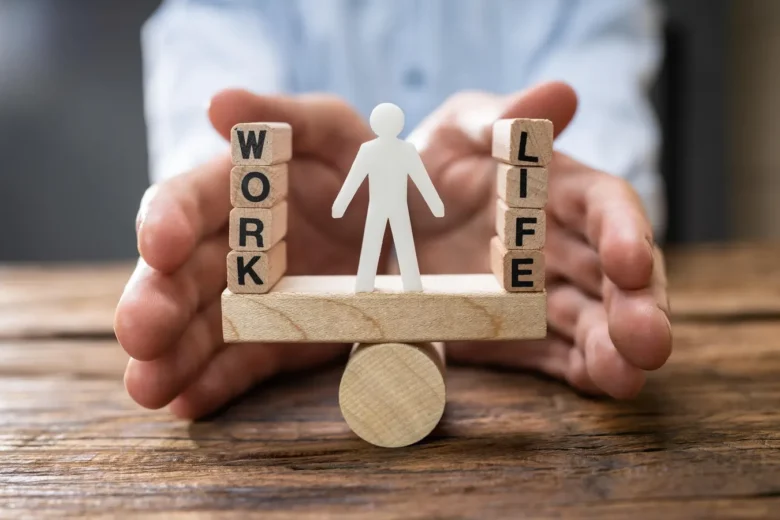Maintaining a balance between work and personal life can be challenging, particularly given the ongoing demands of our professional and personal obligations. However, achieving a healthier work-life balance is not just about reducing work hours but about adopting daily habits that support mental and physical well-being. These routines, when practiced consistently, can bring clarity, reduce stress, and help you feel more in control of your day-to-day life.
This guide explores practical habits that individuals can incorporate into their daily lives to create a harmonious equilibrium between work and personal time. By the end, you’ll understand how small, meaningful changes can lead to significant improvement in your overall happiness and productivity.
Prioritize and Plan
To create better balance, planning your day is essential. Start your morning with ten minutes dedicated to setting priorities and breaking down your tasks into manageable chunks. Please identify the tasks that are essential for today and distinguish those that can be postponed. Relying on to-do lists or productivity methods like time-blocking can help you divide your day into focused work segments and dedicated personal time.
The key here is to make realistic plans. Overloading your to-do list often backfires, leaving you feeling overwhelmed and unaccomplished. Instead, set achievable goals that allow you to focus on quality rather than quantity. This simple habit gives structure to your day and ensures you spend energy on what truly matters.
Take Regular Breaks
It might sound counterintuitive, but regular breaks can significantly improve your productivity and overall well-being. Continuous work without rest can lead to mental fatigue, reduced focus, and eventual burnout. Incorporating small breaks throughout the day gives your mind a chance to reset, making you more effective at your tasks.
For example, try the Pomodoro Technique, which involves working for 25 minutes followed by a 5-minute break. Use this time to stretch, grab a glass of water, or simply step away from your desk. Even short walks in between work sessions can have a powerful effect on both your productivity and mood. Remember, stepping away isn’t laziness; it’s a vital part of sustaining long-term focus.
Healthy Habits
Your work-life balance isn’t just about time management; your health plays a considerable role too. Eating well, exercising, and getting enough sleep are foundational habits for staying energized and managing stress. Begin your mornings with a nourishing breakfast to fuel your day, then aim for balanced meals throughout.
Regular movement is as important as proper nutrition. Whether it’s a full workout, a yoga session, or just a 15-minute walk, physical activity can relieve stress and leave you feeling rejuvenated. Another often-underrated habit is ensuring you get 7-8 hours of sleep each night. A good night’s sleep sets the stage for clearer thinking, better decision-making, and improved emotional regulation.
Set Boundaries
One of the greatest challenges to maintaining balance is letting work creep into personal time. Setting clear boundaries is crucial to protect your mental health and ensure you have space to recharge.
This means sticking to defined working hours and avoiding the temptation to check emails late in the evening. Respect your downtime just as you would a work deadline. Communicate these boundaries openly with colleagues and family members so they understand and support your commitment to preserving your personal time. If you work from home, create a dedicated workspace to separate professional tasks from leisure activities. When your workday ends, physically leave that space behind to signal a mental shift from work mode to personal mode.
Seek Support
No matter how hard we try, none of us can accomplish it alone. When the demands of balancing work and life become overwhelming, reaching out for support is not just okay; it’s necessary. Lean on your friends, family, or colleagues to share responsibilities or simply to talk when you’re feeling stressed. Sometimes, even a brief conversation can provide perspective and help you lighten your load.
Additionally, engaging with professional networks, mentors, or coaches can offer valuable guidance. These individuals often provide tools and advice tailored to your specific circumstances, helping you work through challenges effectively. Never hesitate to seek help where you need it; collaboration and community are integral parts of balance.
A Healthier You Starts Today
Creating a healthier work-life balance doesn’t require an overnight transformation. Instead, it’s the accumulation of small, consistent habits that leads to lasting change. Whether you start by planning your day, prioritizing your health, or setting clear boundaries, every step brings you closer to a more balanced and fulfilling life.
The goal isn’t perfection but progress. By focusing on what works for your unique circumstances, you’ll foster a lifestyle that supports your well-being while allowing you to thrive in both your personal and professional life. Start small, stay consistent, and watch as these simple habits transform your daily routine.
FAQs
1. Why is work-life balance important?
Work-life balance ensures you maintain both your mental and physical well-being while staying productive. It helps prevent burnout, reduces stress, and enhances overall happiness.
2. How can I set effective boundaries between work and life?
Start by defining clear working hours and committing to them. Communicate your boundaries to colleagues and avoid answering emails or taking work calls during personal time.
3. What if my job doesn’t allow for balance?
If your current role makes balance challenging, you might want to discuss potential workload adjustments with your manager or HR department. If that’s not an option, reflecting on a long-term career change toward a more sustainable role may be necessary.
4. How do I stay motivated to maintain these habits?
Focus on the benefits, such as better productivity and reduced stress. Tracking your progress or rewarding yourself for small milestones can also keep you motivated.




